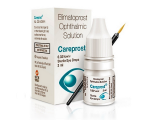Living with erectile dysfunction
If you're one of the millions of men dealing with erectile dysfunction (ED), you're not alone. ED can be a frustrating and discouraging condition, but it doesn't have to control your life. With the right strategies and support, you can take charge of your ED and live a fulfilling life.
Here are some tips for coping with ED:
- Talk to your doctor: ED can be a symptom of an underlying health condition, so it's important to get a thorough medical evaluation.
- Explore treatment options: There are a variety of treatments available for ED, including medications, therapy, and lifestyle changes.
- Communicate with your partner: Open and honest communication can help alleviate stress and anxiety associated with ED.
- Focus on intimacy: Intimacy is more than just sex. Find other ways to connect with your partner and prioritize emotional closeness.
Don't let ED define you. With the right approach, you can overcome this condition and live a satisfying and happy life.
"I never thought I could manage my ED, but with the help of my doctor and support from my partner, I feel like I'm in control again." - John, 58
Coping with Erectile Dysfunction
Have You Been Struggling with Erectile Dysfunction?
If you or a loved one have been struggling with erectile dysfunction, you are not alone. Millions of men around the world face this issue at some point in their lives. However, it's important to remember that there are many effective treatments available that can help you overcome this challenge.
Introducing Our Comprehensive Solution
Our "Coping with Erectile Dysfunction" program offers a comprehensive solution that includes expert guidance, personalized treatment plans, and ongoing support. Our team of experienced professionals will work with you to determine the underlying causes of your erectile dysfunction and develop a customized plan to address them.
Our program includes:
- Individual consultations with a licensed therapist to help you cope with the emotional impact of erectile dysfunction
- Medical screenings and consultations with a board-certified urologist to assess your physical health
- Treatment options, including medications, lifestyle changes, and/or specialized therapies
- Ongoing support and follow-up care
Regain Your Confidence and Sexual Health
At "Coping with Erectile Dysfunction", our goal is to help you regain your confidence and sexual health so that you can enjoy a fulfilling and satisfying sex life once again. Contact us today to learn more about our program and schedule your initial consultation.
Understanding ED: Causes and Symptoms
Causes
Erectile dysfunction, or ED, is a condition that occurs when a man is unable to achieve or maintain an erection sufficient for sexual activity. This can be caused by a variety of factors, including:
- Health conditions such as diabetes, high blood pressure, and heart disease
- Obesity and lack of exercise
- Stress, anxiety, and depression
- Smoking and alcohol use
- Certain medications, such as antidepressants and blood pressure drugs
Symptoms
The most obvious symptom of ED is an inability to achieve or maintain an erection. However, there may be other symptoms that are less obvious, such as:
- Reduced sex drive
- Trouble getting aroused
- Anxiety or depression related to sexual activity
- Difficulty maintaining an erection during sex
If you are experiencing any of these symptoms, it's important to talk to your doctor. They can help you understand the underlying causes of your ED and develop a treatment plan that is right for you.
Medical Treatments for ED
Oral Medications
One of the most popular treatments for ED is the use of oral medications. These medications work by increasing blood flow to the penis, which often results in improved erections. Common oral medications include Viagra, Cialis, and Levitra. It is important to discuss potential side effects and dosage with a healthcare provider before starting any medication.
Penile Injections
Another option for treating ED is the use of penile injections. These injections are administered directly into the penis and produce an erection within minutes. Papaverine, phentolamine, and alprostadil are commonly used medications for penile injections. It is important to note that this treatment may not be suitable for everyone and can cause side effects such as pain or prolonged erections.
Surgical Implants
If other treatments are not effective, surgical implants may be considered. There are two types of surgical implants: inflatable and malleable. Inflatable implants allow for the penis to be inflated for intercourse and deflated at other times. Malleable implants are always firm but can be bent into different positions when not in use. It is important to discuss the potential risks and benefits of surgical implants with a healthcare provider before undergoing the procedure.
- Oral medications can improve erections by increasing blood flow to the penis
- Penile injections may be an option for those who have not found success with oral medications
- Surgical implants may be considered if other treatments are not effective, but have potential risks and should be discussed with a healthcare provider
If you are experiencing ED, it is important to discuss treatment options with a healthcare provider. Medical treatments for ED can help improve your sexual function and overall quality of life.
Lifestyle Changes to Manage ED
1. Quit Smoking
Smoking can constrict blood vessels and reduce blood flow to the penis, making it harder to get and maintain an erection. Quitting smoking can help improve blood flow and reduce the risk of ED.
2. Exercise Regularly
Regular exercise can help improve overall health, increase blood flow and reduce stress which can all have a positive impact in managing ED. Aim for at least 30 minutes of aerobic exercise daily, such as brisk walking, cycling or swimming.
3. Maintain a Healthy Weight
Being overweight or obese can contribute to ED. Maintaining a healthy weight through a balanced diet and regular exercise can help reduce the risk of ED.
4. Manage Stress and Anxiety
Stress and anxiety can contribute to ED. Learning relaxation techniques such as meditation or yoga and addressing any underlying mental health issues can help manage stress and reduce the risk of ED.
5. Limit Alcohol and Drug Use
Excessive alcohol and drug use can contribute to ED. Limiting alcohol consumption and avoiding drug use can help reduce the risk of ED.
6. Talk to Your Doctor
Having open and honest communication with your doctor about any symptoms or concerns you have can help identify the underlying causes of ED and provide appropriate treatment options.
Take control of your sexual health by making simple lifestyle changes to help manage ED.
Psychological Strategies for Living with ED
1. Open Communication
One of the most important strategies for coping with ED is to talk openly with your partner about your condition. Communication can help ease anxiety, build intimacy, and create a supportive environment where both partners feel understood and valued.
2. Mindfulness and Relaxation Techniques
Practicing mindfulness and relaxation techniques can help reduce stress and anxiety, both of which can exacerbate ED. Techniques like deep breathing, meditation, and progressive muscle relaxation can help you remain calm and focused, and may even improve your sexual performance over time.
3. Cognitive Behavioral Therapy (CBT)
CBT is a therapeutic approach that has been shown to be effective in treating ED. It involves identifying and challenging negative thought patterns and beliefs about sex and intimacy and replacing them with healthier, more positive ones. CBT can also help address underlying psychological issues that may be contributing to ED, such as depression, anxiety, or relationship problems.
4. Self-Care and Lifestyle Changes
ED can be a symptom of underlying health problems, such as high blood pressure, diabetes, or obesity. Making lifestyle changes like improving your diet, exercising regularly, and quitting smoking can not only help improve overall health, but may also help improve sexual function. Other self-care strategies like getting enough sleep, reducing stress, and practicing good hygiene can also help improve self-confidence and reduce anxiety.
5. Seek Professional Help
If you're having trouble coping with ED on your own, it's important to seek professional help. A therapist or counselor can help you develop strategies for managing your condition and improving your sexual function. Additionally, a doctor may be able to prescribe medication or recommend other treatments that could help improve your sexual performance.
- Don't suffer in silence
- Open communication with your partner is key
- Practicing mindfulness and relaxation techniques can help
- Identify and challenge negative thought patterns with CBT
- Treat underlying health problems with lifestyle changes
- Professional help is available and can be beneficial
Communication Tips for Couples Affected by ED
1. Be Open and Honest
Communication is key in any relationship, especially when it comes to addressing ED. It is important to have an open and honest conversation with your partner about how you feel and the impact that ED is having on your sexual relationship. This may be uncomfortable, but it is necessary for both partners to understand each other's perspective.
2. Avoid Blame and Judgment
It is important to avoid blaming or judging your partner for their ED. ED is often caused by physical or emotional factors beyond a person's control. Blaming or shaming your partner will only create tension and worsen the situation. Instead, approach the topic with empathy and a willingness to work together towards a solution.
3. Explore Creative Solutions
Explore creative solutions with your partner to find ways to enjoy intimacy and pleasure that do not involve penetration. This may include experimenting with different forms of touch, using sex toys, or trying new positions. By exploring these options together, you can maintain a fulfilling sexual relationship despite ED.
4. Seek Professional Help
If ED is causing significant distress to you or your partner, it may be helpful to seek professional help. A doctor or sex therapist can offer guidance and support to both partners in coping with ED. They can also suggest treatment options that may help alleviate the symptoms of ED and restore sexual function.
- Be open and honest with your partner
- Avoid blame and judgment
- Explore creative solutions
- Seek professional help if necessary
Remember, ED is a common issue that affects many couples. By communicating openly, avoiding blame, and working together, you can maintain a strong and healthy relationship despite the challenges of ED.
Follow us on Twitter @Pharmaceuticals #Pharmacy
Subscribe on YouTube @PharmaceuticalsYouTube





Be the first to comment on "Living with erectile dysfunction"